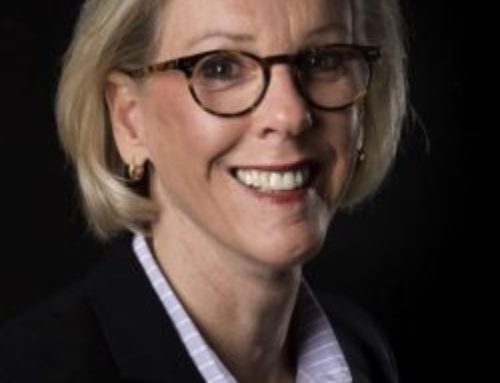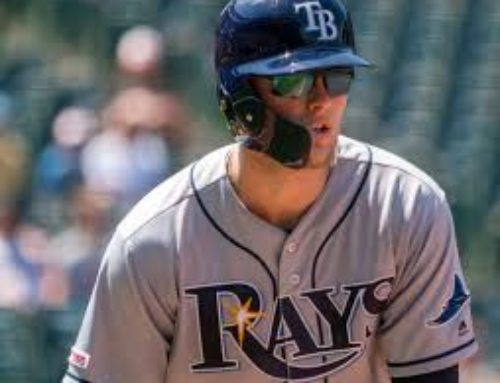By JOEY JOHNSTON
The Tampa Tribune
(c) Tampa Bay Times. Originally published Sept. 7, 2008.
HAZLETON, Pa. – Inside the Third Base Luncheonette – “the next-best place to home,” says the menu – noon-time regulars searched for a spot at the 20-stool counter. They lined up for the rapidly constructed cold-cut hoagies, the house specialty with extra hot pepper spread.
This is the hometown of Rays manager Joe Maddon, and many of his old buddies still congregate at Third Base, their kind of place, a lovable hole in the wall founded in 1949, where nobody is a stranger among this ensemble. The old-timers are sons and daughters of immigrants who mostly labored in the coal mines. Hazleton, with a population of about 23,000 in northeast Pennsylvania, is the only town they have known.
“This is a happy place, a lot of laughs,” said the busy woman working in back, preparing the food, stopping to greet some customers, cleaning up a bit, rarely leaving her feet. “If Joe’s team has won the night before, we’re really happy.”
Her name is Albina Maddon, but everybody calls her Beanie. She’s 75 and still works nearly every day. And at night, when returning to the nearby apartment where she raised her family, where dozens of neighborhood kids once roamed, the action really begins.
Time for baseball – Rays baseball.
Beanie’s son, who might be American League Manager of the Year, has long been the toast of Hazleton, where his spirit still resides. She knew Joe’s team would be better. But the possibilities of this magical season? It’s a gift.
“There are times when my heart is about to burst,” Beanie said.
When the Rays play, she always watches alone on her DirecTV. There’s a blue Tampa Bay cap in the background for good luck, draped near a photo of her beloved late husband. Beanie is active on every pitch when the Rays are batting, and she’ll give the umpire a piece of her mind.
When the other team bats, she can’t watch. She’ll go to the other room. Sometimes, she’ll peek from around the corner.
“I’m much too nervous,” she said.
And the scene plays out all around Hazleton – traditionally a Yankees town, a Phillies town, maybe a bit of a Red Sox town.
Maddon’s younger sister, Carmine (pronounced Car-mean) Parlatore, sits in the same chair at home when the Rays play. Longtime friend Dave Cassarella, who owns Casamato’s Famiglia Ristorante, comes out from behind the bar and catches an inning or two from his truck.
When he returns, the patrons inevitably turn and ask, “What’s the score?”
Maddon’s 11th-grade history teacher, Francis Libonati, listens every night on WAZL, the local radio station that recently became a Rays’ affiliate. Sometimes, he wears his “9 = 8” T-shirt.
“Seeing this happen has been the thrill of my life,” said Libonati, 69. “You’ve got to understand. To the people of Tampa Bay, he’s Joe Maddon, manager of the Rays.
“But to us, he’s still our Joey from Hazleton.”
When Pigs Fly?
When Maddon’s moves are criticized, it cuts deep in Hazleton, where the economy now revolves around industrial parks and strip mining.
When the Rays are painted as a fluke, the locals get angry. After all, it’s their Joey, their team.
Parlatore heard a national telecast in the early season, when the Rays were just becoming a nice little story. Somebody asked about the playoffs.
“Sure, Tampa Bay in the postseason, that will happen … when pigs fly,” the commentator said.
Parlatore nearly flipped – then she developed a plan.
“Do they sell pigs with wings anywhere?” she wondered.
Yes.
She now has a wooden pig, its wings flapping in the wind, hanging from a tree in her backyard. There’s another flying pig statue inside the house. She recently found one more, and it wears aviator glasses.
On her table, there’s a small wooden sign:
When Pigs Fly.
She also has dozens of pennies on her windowsills – only the ones she found with the heads up, of course – for more karma.
“We’re doing whatever we can to help them pull through this thing,” Parlatore said. “It might sound crazy, but we’re in this thing together.”
Not crazy at all.
Maddon was bench coach of the Angels in 2002, and his team won the World Series. When he returned to Hazleton, he was suffocated by attention, and it actually became bothersome. Then a cousin pulled him aside.
“Joe, don’t you get it?” the cousin said. “This isn’t about you. It’s about them.”
He thought about that. Know what? Hazleton had just won the World Series, too. He relaxed.
Maddon likes to say Hazleton is a place where time stands still. If the cars were taken off the streets, you’d think it was 1950. Even with the subtle changes, it’s still a family-oriented, hard-working community.
Although he moved away more than three decades ago, he comes back each year at Christmas for at least a week. The get-togethers are raucous, bust-your-chops affairs. Inevitably, Maddon revives his holiday tradition of preparing hot dogs on the grill at midnight – even if it’s 10 degrees outside.
“Materially, we grew up with nothing,” said Willie Forte, a friend from Maddon’s childhood, when they met playing midget football. “But we wouldn’t trade the way we grew up for anything in the world. We adored our parents. We were surrounded by love.”
With Forte and Maddon both having a father of Italian descent and a mother of Polish descent, they also were surrounded by food – Easter pie, spaghetti and meatballs, Italian cookies and, of course, halupkies, a Polish recipe for stuffed cabbage rolls.
And they were surrounded by sports.
Maddon was the star shortstop/pitcher and quarterback at Hazleton High (the town now has a consolidated area school – and its baseball team plays at Joe Maddon Field). They called him “Broad Street Joe” in honor of the town’s main drag. Maddon, everyone knew, would soon be going places. And he was, first to Lafayette College, then to professional baseball.
“He was simply a cut above,” Libonati said. “He always asked excellent questions. He was a thinker, a terrific student. You knew he would take a leadership position.”
“He always strived, from the very beginning,” Beanie said. “People loved him around here. He never complained. He set goals and worked.”
Just like his father.
Like Father, Like Son
Maddon’s father.
When Parlatore watches Maddon on television, she also sees the father, the gray hair, the mannerisms, the way he used to smile.
When Forte hears Maddon’s interviews, the soft side, the humor, the back-and-forth banter, he thinks about the father’s personality.
Joseph Anthony Maddon was a plumber, following in the footsteps of his father, who immigrated from Italy (Maddonini was the original surname before being shortened to the American version).
C. Maddon & Sons Plumbing and Heating was the downstairs business at the four-family apartment building on E 11th Street. Children were in and out of the place, all the time. The father always made time for them. If something was smashed by an errant baseball, he just laughed and got it fixed.
“My father,” Maddon said from the Tropicana Field dugout, “was the best guy you’d ever want to meet.”
If somebody needed plumbing work and couldn’t pay, well, they’d work something out. The father never lost his temper, never seemed flustered, leaving bad-cop duties to Beanie. She handled much of the discipline for the three kids – Joe, Carmine and Mark, who now lives in St. Augustine and works in a sales position.
Dad sat in the stands at his son’s games, rarely saying a word, but always there.
Friends called him “Howie” – short for Howard Cosell – because he always had an opinion about sports. Mostly, he thought – he knew – his son was meant for something great.
“He taught Joe the right way to live, how to be a man,” said Maddon’s cousin, Dave Mishinski, owner of Third Base. “If people were just half as good as Joe’s dad, there wouldn’t be any problems in this world.”
The father saw his son make the big leagues – as a coach – and he beamed. But in 2002, just after the start of the season, his heart failed and he was gone at age 82. They buried him wearing an Angels cap.
That October, with a display of angels surrounding his father’s grave, Joe Maddon’s Angels won the World Series.
“People said, ‘It was such a shame Joe’s dad didn’t live to see that,'” Forte said. “Excuse me? He not only saw it, he guided it.”
And now, with the Rays the talk of baseball, with so much potentially ahead, Maddon looks back and thinks about his father. Beanie still grieves, visiting Our Lady of Grace Cemetery once or twice a day. When the snow piles high, she’ll just drive by. “You never get over it,” she said.
At her husband’s gravesite, Beanie placed a small stone with a verse.
If Tears Could Build A Stairway,
And Memories A Lane,
I’d Walk Right Up To Heaven,
And Bring You Home Again.
On the headstone, there’s a Rays logo. Beanie stuck it there. Some people still can’t believe Tampa Bay is deep into a pennant race. Beanie calls it destiny, although she refuses to put up her Rays car flag, for the short drives around town, until the team actually clinches something.
“Then I might put up two flags,” she said. “Then I’ll be ready for a party.”
What would a Rays’ World Series appearance mean to Maddon’s family? What would it mean to Hazleton?
“Are you kidding?” Cassarella said. “It would be the biggest thing ever. If you don’t like Joe Maddon, you don’t like anybody. Same thing for Joe’s team. Those guys are easy to like.”
Joe’s team is rounding third, heading for home. Tampa Bay is bracing for the finish.
And all of Hazleton is along for the ride.





